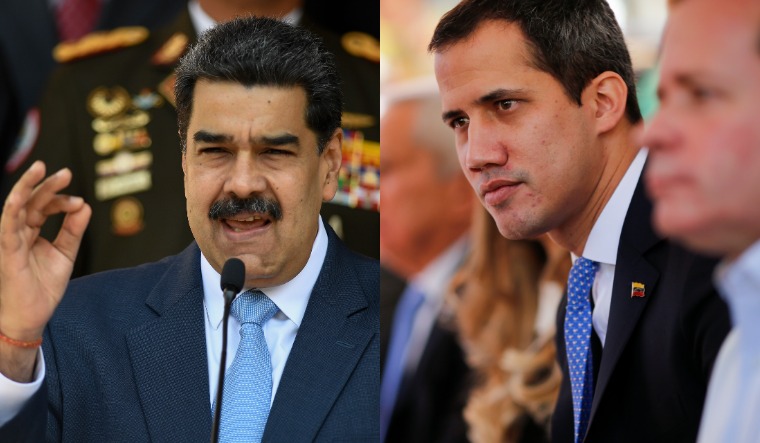Ever since US President Donald Trump recognised Juan Guaido as the "interim president" of Venezuela on January 23, 2019, much of the world has been witness to a spectacle of who should be recognised as the head of the government in Caracas.
Despite pressure from the US, socialist president Nicolas Maduro has clung on to power. On the other hand, Guaido, who is president of the Venezuelan National Assembly, has had little success in unseating Maduro.
Over 50 nations—including US allies such as France, UK, Germany and Australia—recognised Guaido as Venezuela's leader, but little appears to have been done to 'downgrade' ties with Maduro's government. Crucially, Maduro retains the support of China and Russia and also has control of the Venezuelan military, courts and police. This 'recognition' conundrum is evident in a legal drama being played out in the UK.
The UK High Court on Thursday ruled that Guaido had been "unequivocally” recognised as Venezuela's president by the British government. The court made the observations while blocking attempts by the Maduro government to access gold reserves worth approximately $1 billion held by the Bank of England. The Bank of England had blocked access to the gold after the US and UK enforced sanctions on the Maduro government.
The Maduro government had claimed it needed the gold to route funds to the United Nations Development Programme to fight coronavirus in Venezuela. The cash-strapped Maduro regime is selling some of its gold reserves to allies such as Turkey, Russia and the UAE.
Guaido supporters had argued that the gold at the Bank of England should not be handed over to the Maduro government, alleging the proceeds would be used for corrupt purposes.
UK High Court judge Nigel Teare was quoted by the BBC as observing, "Her Majesty's Government does recognise Mr Guaido in the capacity of the constitutional interim president of Venezuela and, it must follow, does not recognise Mr Maduro as the constitutional interim president of Venezuela."
However, a lawyer for Venezuela's Central Bank argued that the UK still recognised the Maduro regime as a "de facto" government. Lawyers for Venezuela's Central Bank said they would appeal against the order.
"He pointed to the fact that the UK has an ambassador in Caracas and that the Maduro-appointed Venezuelan ambassador to London remains in her post in London as proof of the UK's recognition of the Maduro government," BBC reported.


